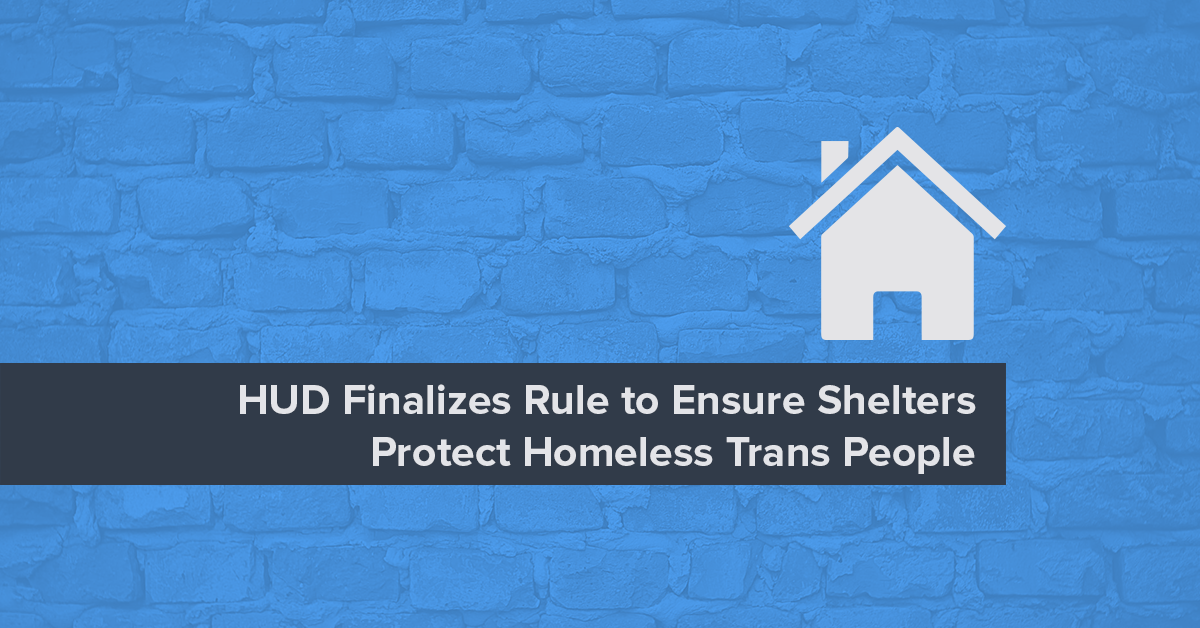HUD Finalizes Rule to Ensure Shelters Protect Homeless Trans People
Image

Today the Department of Housing and Urban Development (HUD) published a final regulation that requires federally-funded emergency shelters to provide access to shelter accommodations consistent with a person’s gender identity. This follows similar Department of Justice guidance for domestic violence shelters and other programs funded by the Violence Against Women Act (VAWA). Over 300 national, state, and local organization advocating for victims of sexual and domestic violence have vocally supported ensuring access to facilities such as homeless shelters that are consistent with a person’s gender identity.
The new rule clarifies the 2012 HUD rule prohibiting anti-LGBT discrimination in all HUD-funded programs. It requires that shelters that segregate housing or programs by gender must respect each person’s self-identified gender, and cannot force a person into a shelter inconsistent with their gender identity. The rule permits any shelter-seeker to request alternative housing on a voluntary basis. Shelters will be required to post notices regarding the new rule.
The denial of access to safe and appropriate shelter has long been a dangerous reality for transgender people. Sex-segregated shelters frequently refuse to house transgender people in shelters that match their gender identity or force them to use shelters designated for the wrong gender in order to be allowed to stay. According to the 2011 National Transgender Discrimination Survey, nearly one in three trans people who tried to access homeless shelters were turned away on the basis of their gender identity, and 42% were forced to stay in facilities designated for the wrong gender. A more recent survey by the Center for American Progress and the Equal Rights Center found that only 30 of 100 shelters in four states said they were willing to house transgender women with other women.
NCTE played a leading role in years of advocacy leading to this new regulation, which will help protect transgender shelter-seekers from dangerous situations. NCTE also pressed HUD to issue the 2012 rule prohibiting anti-LGBT discrimination in all HUD -funded programs and 2015 guidance for shelters explaining how these protections applied to shelters. Over 1,500 people joined comments from NCTE urging adoption of the rule, and over 200 also shared personal stories and comments with HUD.
While many shelters do not receive HUD funding, they may be covered under VAWA or state or local nondiscrimination laws. NCTE will continue to work with HUD, shelter providers, and other advocates to implement these protections and will continue to advocate for investment in affordable and supportive housing so we can dramatically reduce homelessness. If you have faced discrimination in housing or shelters, you can check out our Know Your Rights resource and consider filing a complaint with HUD.

